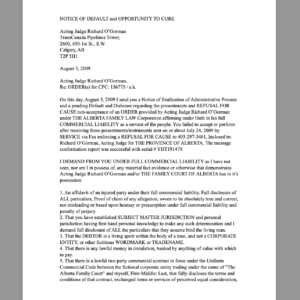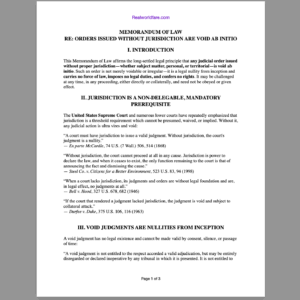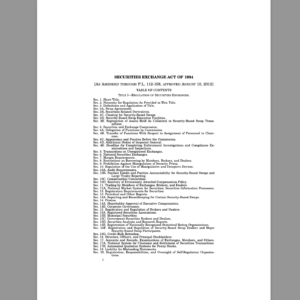Black’s Law Dictionary 8th Edition, pages 1114-1116:
creditor. 1. One to whom a debt is owed; one who gives credit for money or goods. — Also termed debtee. 2. A person or entity with a definite claim against another, esp. a claim that is capable of adjustment and liquidation. 3.Bankruptcy. A person or entity having a claim against the debtor predating the order for relief concerning the debtor. [Cases: Bankruptcy 2822.C.J.S. Bankruptcy §§ 239, 241.] 4.Roman law. One to whom any obligation is owed, whether contractual or otherwise. Cf. DEBTOR.
attaching creditor.A creditor who has caused an attachment to be issued and levied on the debtor’s property. [Cases: Attachment 16. C.J.S. Attachment § 9.]
bond creditor.A creditor whose debt is secured by a bond.
catholic creditor.Scots law. A person who has a security interest in more than one piece of the debtor’s property.
certificate creditor.A creditor of a municipal corporation who receives a certificate of indebtedness rather than payment because the municipality cannot pay the debt. Cf. warrant creditor.
conditional creditor.Civil law. A creditor who has either a future right of action or a right of action in expectancy.
creditor at large.A creditor who has not established the debt by reducing it to judgment, or who has not otherwise secured a lien on any of the debtor’s property.
domestic creditor.A creditor who resides in the same state or country as the debtor or the debtor’s property.
double creditor.A creditor who has a lien on two funds. Cf. single creditor.
execution creditor.A judgment creditor who has caused an execution to issue on the judgment. [Cases: Execution 17. C.J.S. Executions § 20.]
foreign creditor.A creditor who resides in a different state or country from that of the debtor or the debtor’s property.
gap creditor.Bankruptcy. A creditor who extends credit to, lends money to, or has a claim arise against the debtor in the period between the filing of an involuntary bankruptcy petition and the entry of the order for relief. • Under the Bankruptcy Code, a gap creditor’s claim receives second priority, immediately below administrative claims. 11 USCA §§ 502(f), 507(a)(2). [Cases: Bankruptcy 2833. C.J.S. Bankruptcy § 240.]
general creditor.See unsecured creditor.
hypothetical creditor.Bankruptcy. An actual or code-created judicial-lien creditor or bona fide purchaser who establishes a bankruptcy trustee’s status under the Bankruptcy Code’s priority scheme, claiming property through the debtor at the time of the bankruptcy filing. 11 USCA § 544. — Also termed hypothetical lien creditor. [Cases: Bankruptcy 2704, 2705. C.J.S. Bankruptcy §§ 123, 134, 158.]
joint creditor.A creditor who is entitled, along with another creditor, to demand payment from a debtor.
judgment creditor.See JUDGMENT CREDITOR.
junior creditor.A creditor whose claim accrued after that of another creditor; a creditor who holds a debt that is subordinate to another’s.
known creditor.A creditor whose identity or claim is either known or reasonably ascertainable by the debtor. • Known creditors are entitled to notice of the debtor’s bankruptcy or corporate dissolution, as well as notice of any deadline for filing proofs of claim.
lien creditor.A creditor whose claim is secured by a lien on the debtor’s property. UCC § 9-102(a)(52). [Cases: Secured Transactions 140. C.J.S. Secured Transactions § 92.]
preferred creditor.A creditor with a superior right to payment, such as a holder of a perfected security interest as compared to a holder of an unsecured claim. [Cases: Secured Transactions 138–140, 168. C.J.S. Secured Transactions §§ 88, 90–92, 106–107, 119–124.]
principal creditor.A creditor whose claim or demand greatly exceeds the claims of other creditors.
prior creditor.A creditor who is given priority in payment from the debtor’s assets.
secondary creditor.A creditor whose claim is subordinate to a preferred creditor’s.
secured creditor. A creditor who has the right, on the debtor’s default, to proceed against collateral and apply it to the payment of the debt. UCC § 9-102(a)(72). — Also termed secured party.
“ ‘Secured party’ means (A) a person in whose favor a security interest is created or provided for under a security agreement, whether or not any obligation to be secured is outstanding; (B) a person that holds an agricultural lien; (C) a consignor; (D) a person to which accounts, chattel paper, payment intangibles, or promissory notes have been sold; or (E) if a security interest or agricultural lien is created or provided for in favor of a trustee, agent, collateral agent, or other representative, that representative.” UCC § 9-102(a)(72).
single creditor.In the marshaling of assets, a creditor with a lien on one fund. Cf. double creditor.
specialty creditor.A creditor to whom an heir is liable for a decedent’s debts to the extent of the land inherited. • Historically, unless the creditor obtained a judgment against the debtor before the debtor’s death, the creditor’s right of action on the debt was limited to the decedent’s lawful heir. If the debtor devised the land to a stranger, the creditor’s claim was defeated. See HEIR(1).
“There were three exceptions to this rule that a fee simple estate was not liable to the creditors of the deceased. Debts due to the Crown and debts due to judgment creditors were enforceable against the land notwithstanding the death of the owner, and thirdly, if the fee simple tenant had in his lifetime executed a deed whereby he covenanted for himself and his heirs to pay a sum of money, the creditor (called a specialty creditor) could make the heir liable for the debt to the extent of the land which had descended to him. But this privilege of the specialty creditor was not at first enforceable against an equitable fee simple, and it was strictly limited to a right of action against the heir of the deceased, so that the creditor was defrauded of his money if the deceased devised his land to a stranger.” G.C. Cheshire, Modern Law of Real Property 738 (3d ed. 1933).
subsequent creditor.A creditor whose claim comes into existence after a given fact or transaction, such as the recording of a deed or the execution of a voluntary conveyance.
unsecured creditor.A creditor who, upon giving credit, takes no rights against specific property of the debtor. — Also termed general creditor.
warrant creditor.A creditor of a municipal corporation who is given a municipal warrant for the amount of the claim because the municipality lacks the funds to pay the debt. Cf. certificate creditor. [Cases: Municipal Cor-porations 896. C.J.S. Municipal Corporations §§ 801, 1636.]
15 U.S. Code § 1692a – Definitions:
(4) The term “creditor” means any person who offers or extends credit creating a debt or to whom a debt is owed, but such term does not include any person to the extent that he receives an assignment or transfer of a debt in default solely for the purpose of facilitating collection of such debt for another.
15 U.S. Code § 1602 – Definitions and rules of construction:
(g) The term “creditor” refers only to a person who both (1) regularly extends, whether in connection with loans, sales of property or services, or otherwise, consumer credit which is payable by agreement in more than four installments or for which the payment of a finance charge is or may be required, and (2) is the person to whom the debt arising from the consumer credit transaction is initially payable on the face of the evidence of indebtedness or, if there is no such evidence of indebtedness, by agreement. Notwithstanding the preceding sentence, in the case of an open-end credit plan involving a credit card, the card issuer and any person who honors the credit card and offers a discount which is a finance charge are creditors. For the purpose of the requirements imposed under part D of this subchapter and sections 1637(a)(5), 1637(a)(6), 1637(a)(7), 1637(b)(1), 1637(b)(2), 1637(b)(3), 1637(b)(8), and 1637(b)(10) of this title, the term “creditor” shall also include card issuers whether or not the amount due is payable by agreement in more than four installments or the payment of a finance charge is or may be required, and the Bureau shall, by regulation, apply these requirements to such card issuers, to the extent appropriate, even though the requirements are by their terms applicable only to creditors offering open-end credit plans. Any person who originates 2 or more mortgages referred to in subsection (aa) in any 12-month period or any person who originates 1 or more such mortgages through a mortgage broker shall be considered to be a creditor for purposes of this subchapter. The term “creditor” includes a private educational
« Back to Glossary Index











Recent Comments